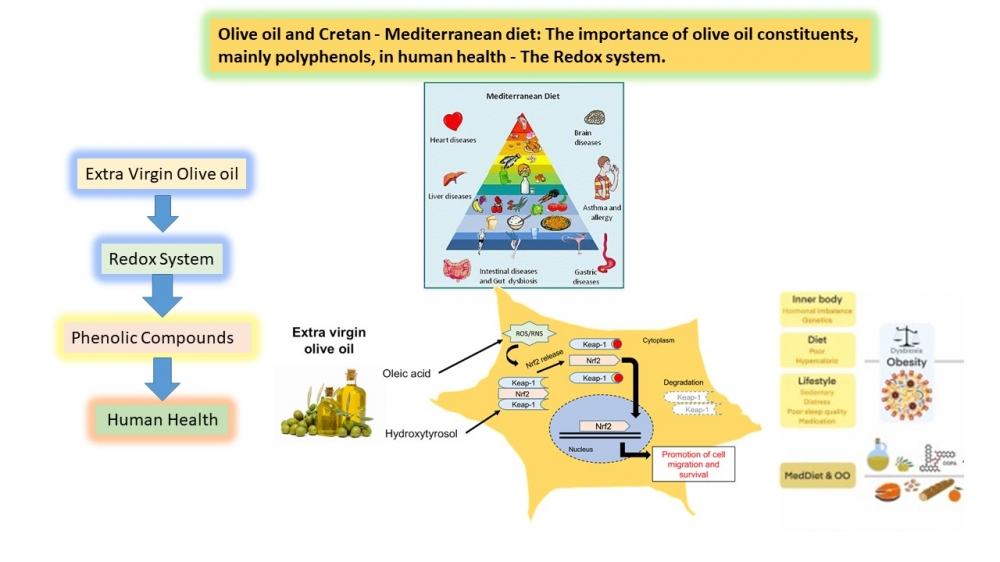JOURNAL 3072
Records of Agricultural and Food Chemistry
Year: 2024 Issue: 3 Special Issue: Abstracts 3rd. TCS, International Food Chemistry Congress February 29-March 03,2024 Antalya Türkiye
p.60 - 60
Viewed 1632 times.
GRAPHICAL ABSTRACT

ABSTRACT
The Mediterranean diet, a term that was coined by Ancel Keys back in 1960, is one of the most studied and well-known dietary patterns worldwide. Descriptions of the traditional MedDiet have reflected food patterns typical of Crete, a part of the rest of Greece, and southern Italy in the early 1960s. Variations of the MedDiet exist but have been less well described in other parts of Italy, France, Lebanon, Morocco, Portugal, Spain, Tunisia, Turkey, and elsewhere in the Mediterranean region. MedDiet is characterized by a high intake of olive oil (especially virgin and extra virgin olive oil) used as the principal source of fat. The significance of macro- and micro-components of extra virgin olive oil, such as the oleic monounsaturated fatty acids (MUFAs) and the phenolic compounds, will be discussed. Mechanisms of phenolic compounds preventing oxidation, extending shelf life, imparting bitterness and astringency, and stimulating the sensory properties of extra virgin olive oil will be explained. The preventive aspects of phenolic compounds against various chronic diseases, including coronary heart disease, cancer, and diabetes, are highlighted. There will also be a reference to the bioavailability and bioaccessibility of these biofunctional compounds, exploring their modulating effects on oxidative stress, telomere length, and successful aging through redox function and epigenetic modulation capacities. The adoption of healthy and sustainable diets and the transition to sustainable food systems are of principal importance in order to counteract the double burden of climate change and noncommunicable diseases. The Mediterranean diet (MD), widely recognized as a healthy diet, is also considered a resource with higher diversity in food plants and is sustainable with reduced land use, water use, eutrophication potential, and greenhouse gas emissions.
KEYWORDS- Olive oil
- bioactive compounds